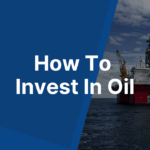The eToro share price has tanked since its IPO at $52 in May 2025, and it is now down over 50%, dropping below $30 for the first time last week. However, if you think this drop represents a good time to buy, it’s really easy to buy shares in eToro.
To buy shares in eToro from the UK follow these steps:
- Choose a broker that lets you buy US stocks (you can do this on eToro if you like)
- In the search bar type eToro (or ETOR the stock symbol)
- Choose how many shares you want to buy (with eToro you can also select an amount)
- Decide if you want to buy now with a market order (or wait for the price to drop using a limit)
- Click buy and track the performance of your shares in your portfolio
There are a couple of things to watch out for, though.
Firstly, FX fees – when you buy US shares, you have to convert your GBP into USD, this can be expensive on some brokers. eToro is quite expensive for this. Interactive Brokers is the cheapest.
Secondly, dealing commission – eToro doesn’t charge commission, but instead makes money through FX fees when you deposit money. Brokers like AJ Bell and interactive investor do charge a fee, though.
Thirdly – you also need to watch out for account charges. There is no account fee with eToro or Interactive Brokers (IBKR).
Fourthly – watch out for tax. You can buy shares in a stocks and shares ISA with eToro through Moneyfarm (where you also get a pretty good 3% cashback and tax-free profits), or you can go with a more traditional investment platform like Hargreaves Lansdown, although there is a small account fee for doing so.
Who is eToro?
eToro is an Israeli FinTech company that offers a trading and investing platform. It was founded in 2007 with the goal of enabling everyone to trade and invest in a simple and transparent way.
Through its platform, you can trade a wide range of assets including stocks, exchange-traded funds (ETFs), crypto-assets, and commodities. Investors can also copy other traders via its CopyTrader feature. You can also trade CFDs on leverage and short the market, however eToro does not offer financial spread betting (where your profits are free of capital gains tax).
Today, eToro’s footprint is extensive – it currently operates in over 100 countries worldwide. According to the company, it has 40 million users around the world at present.
How does eToro make money?
eToro makes money in several ways including:
- Trading fees: eToro charges some users (depending on where they are based) fees to buy and sell securities.
- Spreads: Spreads are the difference between the price to buy and sell a security.
- Currency conversion fees: If your base currency is not USD, eToro will charge a fee to convert your money to USD.
- Withdrawal fees: The company charges fees to withdraw money externally.
- Inactivity fees: The company charges a monthly fee to those who don’t log in for 12 months.
Are eToro shares worth buying?
eToro shares have struggled since the IPO, trading around $31, roughly 40% below the $52 listing price, with Invesdaq analysts explaining why the eToro share price is so low citing several overlapping factors.
Edward Sheldon said the weakness is driven by “a few different factors including… competition,” noting that “analysts at Goldman Sachs downgraded the stock to ‘neutral’ on the back of competition concerns.” He also pointed to crypto and sentiment shifts, adding that “eToro is a major crypto trading platform… and crypto has been weak recently.”
Darren Sinden argued the underperformance is partly structural, saying “the main factors behind the share price fall are geographic and cultural differences,” because eToro’s client base is “international rather than US focused,” with “just 10.0% of eToro’s clients… in the US.” He also noted that crypto downturns matter because “crypto trading is a higher margin business… so a prolonged downturn… would likely dent the firm’s revenues.”
Jackson Wong added that eToro may simply be following the typical post-IPO pattern, writing that “many of these newly-listed brokers tend to go through a ‘Boom-Bust’ cycle” and that “eToro is no different.” While the tone is cautious, Sheldon suggested he “wouldn’t short the stock” given the lower valuation, and Wong concluded it is one to watch depending on whether “their fundamentals (revenue, margin, profits etc) are worth buying for the long term.”
What are the risks?
It’s worth noting that there are a few risks to consider with eToro shares.
One is in relation to competition. eToro operates in a very competitive industry so there is no guarantee that it will continue to have success. Not only is it up against FinTech platforms such as Robinhood, Trading 212, and Freetrade, but it is also up against larger, more powerful players such as Charles Schwab and Fidelity.
Another risk is financial market volatility. If financial markets were to experience a meltdown, interest in trading and investing could dissipate. This could lead to lower revenue for the company.
Finally, it’s worth highlighting regulatory risk. Financial services is a highly regulated industry and eToro’s services could be vulnerable to regulatory intervention. In the past, the company has been fined by the SEC.
As always, it’s important to understand the risks before investing in a company.
eToro is a multi-asset investment platform. The value of your investments may go up or down. Your capital is at risk.

Richard is the founder of the Good Money Guide (formerly Good Broker Guide), one of the original investment comparison sites established in 2015. With a career spanning two decades as a broker, he brings extensive expertise and knowledge to the financial landscape.
Having worked as a broker at Investors Intelligence and a multi-asset derivatives broker at MF Global (Man Financial), Richard has acquired substantial experience in the industry. His career began as a private client stockbroker at Walker Crips and Phillip Securities (now King and Shaxson), following internships on the NYMEX oil trading floor in New York and London IPE in 2001 and 2000.
Richard’s contributions and expertise have been recognized by respected publications such as The Sunday Times, BusinessInsider, Yahoo Finance, BusinessNews.org.uk, Master Investor, Wealth Briefing, iNews, and The FT, among many others.
Under Richard’s leadership, the Good Money Guide has evolved into a valuable destination for comprehensive information and expert guidance, specialising in trading, investment, and currency exchange. His commitment to delivering high-quality insights has solidified the Good Money Guide’s standing as a well-respected resource for both customers and industry colleagues.
To contact Richard, please see his Invesdaq profile.




